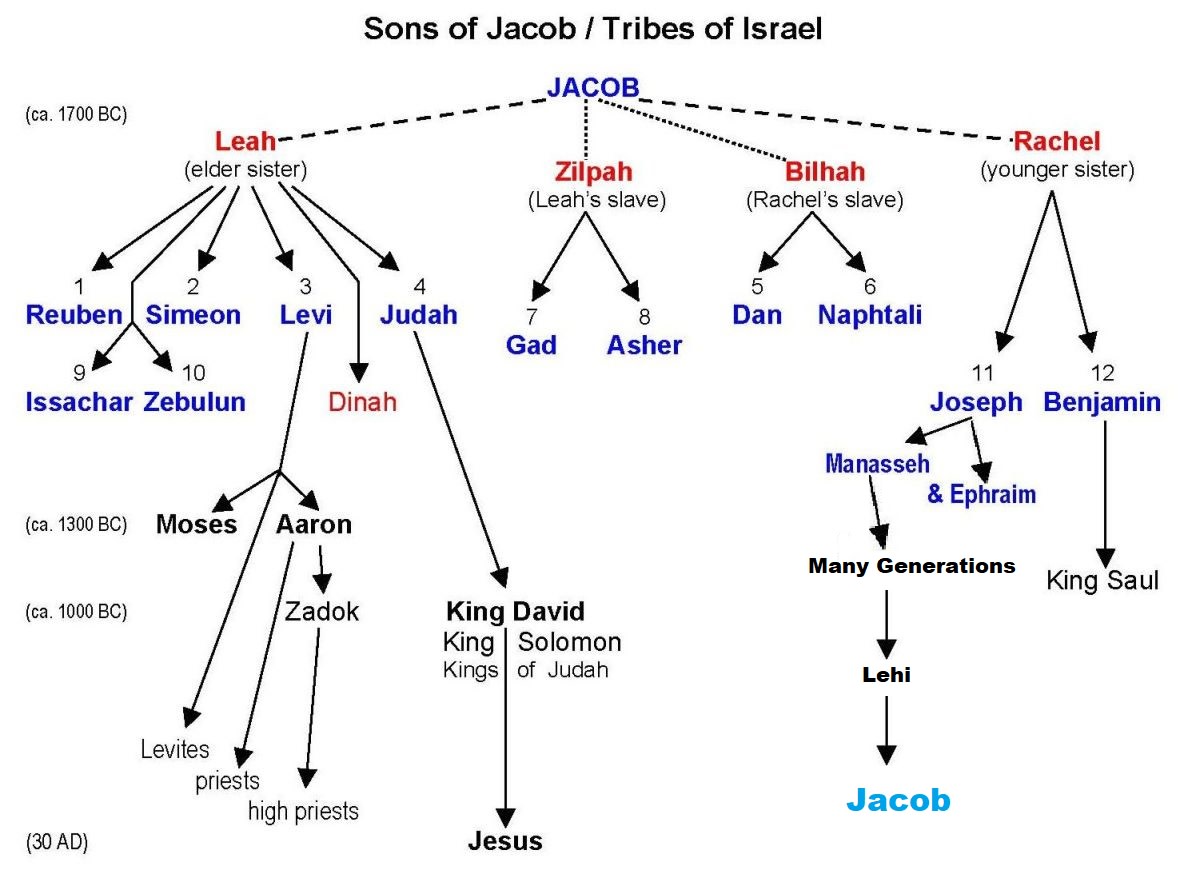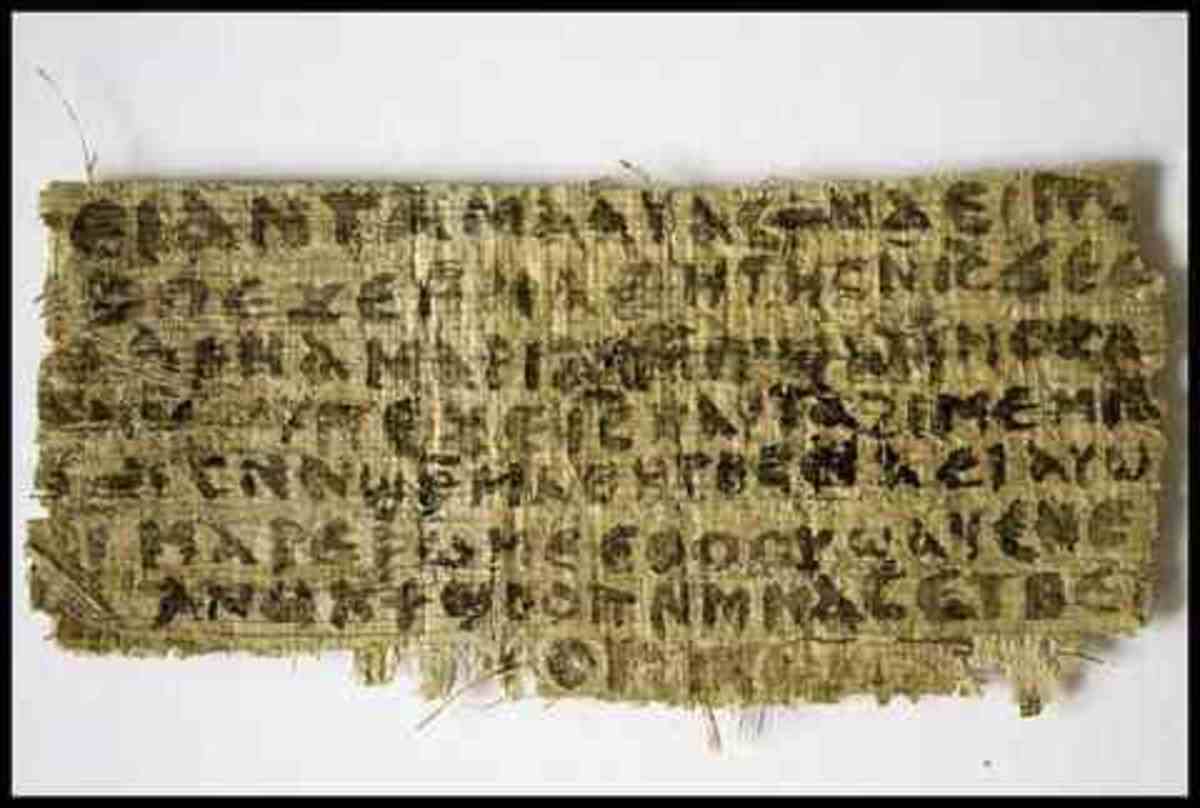Divine Election of the Saints: Predestined and Chosen by Grace
Throughout church history there has been much debate about the doctrines of predestination and election. In this hub I will give a biblical argument for the case that God unconditionally elects and predestines some people to salvation according to His purpose and will. This hub will be a solid introduction to the doctrines and not an exhaustive study. I will shine some more light on these subjects in future hubs.

Whoever Comes to Me?
But I said to you that you have seen me and yet do not believe. All that the Father gives me will come to me, and whoever comes to me I will never cast out. (John 6:36-37 ESV)
The good news is that salvation has been made possible for all. The greater news is that salvation is made certain for some. For "whoever comes to me I will never cast out," but in His great mercy God has decreed "All that the Father gives me will come to me."
It is the giving of the Father to the Son that brings about the "coming" to Jesus, or believing in Him. This passage speaks about man's inability to believe and God's irresistible calling so that they will believe. This is especially evident when read in context with verses 44-45:
No one can come to me unless the Father who sent me draws him. And I will raise him up on the last day. It is written in the Prophets, 'And they will all be taught by God.' Everyone who has heard and learned from the Father comes to me. (John 6:44-45)
The drawing done here is not a universal drawing which God draws everyone in order to see whether they respond positively to the call, because notice what Jesus says about those whom are drawn: "And I will raise him up on the last day." Thus, if one is drawn to Christ then they will be saved and raised on the Day of Resurrection. Jesus quotes the prophets and says, "They will all be taught by God." Who's "they"? "They" are those who are drawn to Christ. They are taught by God in order that they would come to Christ, and they will be raised up with Christ on the Last Day. This is the means to how God draws those He gives to Jesus: "Everyone who has heard and learned from the Father comes to me" (v 45). We can infer that not everyone hears, learns, and is drawn by God, because then everyone would come to Christ in faith. For further clarification, He also says, "It is the Spirit who gives life; the flesh is no help at all" (v 63).
In context, Jesus is explaining why the people are in disbelief. It had not been given to them to believe. He said, "But I said to you that you have seen me and yet do not believe. All that the Father gives me will come to me." Therefore, if the Father had given them to Christ then they would have believed. Jesus reiterated these words in verse 65 concerning Judas: "This is why I told you that no one can come to me unless it is granted him by the Father." Jesus was not taken by surprise that Judas, one of the twelve, would be lost and betray Him. As Jesus stated, it had not been granted to Judas by the Father to come to Jesus. This was offensive to the crowds, because after He said these things they departed from Him.
The Objection: All People?
What shall we say then concerning Jesus' words in John 12:32?
And I, when I am lifted up from the earth, will draw all people to myself.
This text in John 12 says that He will draw all people to Himself. What we must realize is that when the New Testament says "all people" or "the world," it often means all people without distinction not all people without exception. That is, God is no longer the personal God of ethnic Israel as we saw in the Old Testament, but He now extends His saving grace to every tribe, nation, and tongue. Let us look at some examples from Scripture:
But one of them, Caiaphas, who was high priest that year, said to them, “You know nothing at all. Nor do you understand that it is better for you that one man should die for the people, not that the whole nation should perish.” He did not say this of his own accord, but being high priest that year he prophesied that Jesus would die for the nation, and not for the nation only, but also to gather into one the children of God who are scattered abroad. (John 11:49-52)
A major motif in the New Testament is that the veil was torn so that all people, Jew and Gentile, have access to God and not merely the Jews. Salvation has now come to the Gentiles as well as the Jews. Here, Caiaphas unknowingly prophesied that Jesus would die for the people--not for the Jewish nation only but also for the children of God who are scattered among all nations. The elect, God's chosen people, is described as His children who are scattered abroad--scattered around the world. Jesus died not merely to pay for sins, but He died also to gather together the children of God. We must understand that there are two types of people in this world: children of God and children of the devil (1 John 3:10). Everyone falls into one camp or the other. Jesus said, "That which is born of the flesh is flesh, and that which is born of the Spirit is spirit" (John 3:6). Those who are born of the Spirit are the children of God, and those who are born of the flesh are by nature children of Satan. The distinction between a believer and a nonbeliever is that one has the Spirit of God in him and the other does not, and one is an instrument of God and the other an instrument of the devil. I'll address this matter in more detail later.
Here is another passage that makes clear of what was purchased in the death of Jesus Christ--"the children of God who are scattered abroad":
And they sang a new song, saying, “Worthy are you to take the scroll and to open its seals, for you were slain, and by your blood you ransomed people for God from every tribe and language and people and nation." (Revelation 5:9)
This is how we are to define "all people" or "the world": "people from every tribe, language, people, and nation." "All people" or "the world" often means all people without distinction (not the Jews only but all tribes and nations) and not all people without exception (every individual). In the same way that "all people" often means all people without distinction, "the world" also at times carries the same meaning. John's first epistle speaks this way: "[Jesus] is the propitiation for our sins, and not for ours only but also for the sins of the whole world" (1 John 2:2). Here, John is saying that Jesus is the propitiation (the satisfying or appeasing of God's wrath) of not only John's and his readers' sins but also the world's--people from every tribe, nation and tongue. John speaks in a similar way as he did in his gospel letter (as we have already covered in John 11:49-52). Let us compare the two passages from John's gospel and his epistle. The epistle says that Jesus was the "propitiation for our sins." Propitiation means a substituting sacrifice that satisfies the wrath of God. The Gospel of John says, "Jesus would die for the nation." So, there is a correlation between "for our sins" and "for the nation." Next, the epistle says "not for ours only" and the gospel says "not for the nation only." Here is a more direct correlation between "ours" and "nation." Lastly, the epistle says "but also for the sins of the whole world" and the gospel says "but also to gather into one the children of God who are scattered abroad." This is what John had in mind when he said "for the sins of the whole world." So, the whole world in his epistle is better defined as those who are scattered abroad, or as he also wrote in Revelation, "people from every tribe and language and people and nation."
Thus, when Jesus says that He will draw all people to Himself, it should be interpreted as "And I, when I am lifted up from the earth, will draw all types of people from every tribe and language and people and nation to myself." Sinners must be irresistibly drawn to Christ, because if we are able to reject Christ, then we will. Our heart of stone will not allow us to love and desire God. If our nature is not completely changed from a vessel that desires and loves darkness to a vessel that desires and loves light, then we have no hope of loving God or receiving His Son, Jesus Christ. Shining the light into a blind eye doesn't do any good, either. We must be given eyes to see, ears to hear, and a new heart to understand and desire righteousness. In conclusion, we are able to make more sense of John 6:44 ("No one an come to me unless the Father who sent me draws him. And I will raise him up on the last day.") by saying that God does not draw every individual to Himself, because Jesus states that every individual that the Father draws will come to Christ and he will be raised up on the last Day. None are lost and they cannot be snatched from Their hands (see John 10:28-30).
Our Total Inability to Believe
The total inability of man to believe in Jesus is a real concept. Our inability is not a physical inability as if an outside agent was restraining us against our will. Rather, our inability is a moral inability where our choices and decisions are bound to our strong desire and love for darkness. When studying how we make choices, we must realize that our choices are not arbitrary but they act upon and are governed by our greatest desire and inclination at that point in time. A man does not merely choose sin. He loves sin.
And this is the judgment: the light has come into the world, and people loved the darkness rather than the light because their works were evil. For everyone who does wicked things hates the light and does not come to the light, lest his works should be exposed. (John 3:19-20)
We are not by nature victims searching for hope, but we are by nature hardened criminals running from the Law and Judge. Our inability does not excuse us from judgment, the wrath to come, but our inability to come to the light intensifies our guilt and God's judgment against us. For we willfully reject His offer of salvation, because our love for darkness is consuming and wicked. The word "love" in verse 19 to describe our love for darkness is the same word in the Greek used to describe God's love for the world in verse 16: "For God so loved the world." Humanity's free will apart from the regenerating grace of God only begets rebellion and hatred for the light which is righteousness and truth.
Recall Jesus' words that I already addressed: "No one can come to me unless the Father who sent me draws him." Let's take a closer look at this passage in John 6:44. In the phrase "no one can come," dynamai is the Greek word for "can." This word expresses ability or in this case inability. This is where the word "dynamite" comes from which is often translated as "power." Also, the word for "draw" is typically translated to mean "drag" in other passages of the New Testament. It seems that translators used the word "draw" here to soften the meaning and implication in this verse. This is the same word used in the Greek to describe how the people dragged Paul out to the streets to be killed for preaching the gospel (see Acts 16:19, 21:30; James 2:6). Thus, John 6:44 is better understood as "No one has the ability to come to me unless the Father who sent me drags him." However, do not be confused, because He is not dragging us against our will; rather, He changes its desires in which we come to Him freely, because He has made us into a new creation through regeneration.
Our inability is as heinous as it is serious, and God could have left us to ourselves at the outward calling of the preaching of the gospel. However, He gave some to Christ, and He calls them and draws them with power by the Holy Spirit. This is the hope that we have in Christ Jesus so that none may boast but give thanks and rejoice.
Election Explained in a Few Minutes
God's Calling of the Elect
Scripture declares that there are two types of callings: the inward and outward. The outward calling is merely the vocal proclamation of the gospel. When someone audibly hears the Word of God proclaimed or when he or she reads the Bible, their ears hear it as the "outward" calling. Everyone everywhere is called and commanded by God to repent and believe in the gospel. However, since this calling falls on deaf ears (or shall we say, "a deaf heart," because we are all innately dead, spiritually), God must call some people (whom He has chosen by grace) with an inward calling by the Holy Spirit. This calling penetrates the heart where no one else can reach--circumcising it to desire righteousness. Only God can reach the heart of the sinner, and He calls, or draws, us by opening our spiritual eyes and ears--giving us a new heart to believe.
And I will give them one heart, and a new spirit I will put within them. I will remove the heart of stone from their flesh and give them a heart of flesh. (Ezek 11:19)
The old heart, the heart of stone, cannot believe because it is hostile towards God--loving darkness and hating the light. The heart of stone is unresponsive to spiritual stimuli. However, God regenerates some of those who hear the gospel by giving them a new heart, and for the first time they see Jesus Christ as He truly is and they respond with belief.
God calls and draws the elect to Christ not whimsically, but the act of God's calling was purchased through the blood of Jesus Christ. Jesus didn't die only to wait and see who would accept His offer of salvation even though His salvation is freely offered to all people. Jesus also died to purchase a specific people whom He had chosen before the foundation of the world, and He purchased His effectual calling upon them. Recall John's statement from earlier: "But He died also to gather together the children of God." That heart of flesh that Ezekiel speaks about was purchased by the blood of Christ. God doesn't freely give us new hearts, but a transaction at the cross was made so that He could transform the elect into a new creation.
Paul gives praise and thanks to God: "For we know, brothers loved by God, that he has chosen you, because our gospel came to you not only in word, but also in power and in the Holy Spirit and with full conviction" (1 Thess 1:4). So when we preach the gospel to a group of unbelievers, the message is brought to them "in word." The "word" spoken here was the audible proclamation of the gospel which they heard with their ears. However, for those whom God had chosen, the word was also accompanied with "power and in the Holy Spirit and with full conviction" which is evident by their faith. Thus, they believed because the proclamation of the gospel was accompanied by the power of the Holy Spirit. According to Paul, this is how he knew those in Thessaloniki were chosen by God. Look at how Paul explains God's calling in his first letter to the church in Corinth:
For Jews demand signs and Greeks seek wisdom, but we preach Christ crucified (outward calling), a stumbling block to Jews and folly to Gentiles (universal disbelief; inability to believe), but to those who are called (inward calling), both Jews and Greeks, Christ the power of God and the wisdom of God (irresistible grace; effectual calling). (1 Cor 1:22-24; parenthetical notes added)
Paul is saying that Jews don't come to Christ because they demand signs, and Greeks (Gentiles) seek wisdom. Collectively, they represent all people. Thus, when we preach Christ crucified to the Jews they stumble over that truth and do not believe, and when we preach Christ crucified to the Gentiles they walk away because it's foolishness to them. However, to those whom God calls from both camps, Jews and Gentiles, Christ becomes the power of God and the wisdom of God, respectively. So, only those who are called by God receive Christ in faith, because He is no longer a stumbling block or foolishness to them. So, why do some of us believe and not others? Are some of us more discerning, spiritual, or smarter? No, after this verse he states, "For consider your calling, brothers: not many of you were wise according to worldly standards, not many were powerful, not many were of noble birth. But God chose what is foolish in the world to shame the wise; God chose what is weak in the world to shame the strong" (1 Corinthians 1:26-27). It wasn't as if many foolish and weak people came together and said, "Hey, let's believe in Christ and start a church." No, but it was God who chose the foolish and weak in order to shame the wise and the strong. In verse 29, Paul tells us why God designed election the way He did: "So that no human being might boast in the presence of God." When all is said and done, we have no room for boasting: not of our works nor even our faith. For then Paul declares in the next verse, "And because of him you are in Christ Jesus." Because of who? Those who believe in Jesus Christ are in Christ because of God. God is the means which believers are in Christ.
As we have seen, Paul tells us that the gospel came to some, both Jew and Greek, not only in word (the outward calling) but also in power (the inward calling), and now the gospel is no longer to them a stumbling block or folly but power and wisdom. It's apparent that those who did not believe were left in their own unbelief, because God gave them up to their passions and desires (see Rom 1:24-28).
He chose us in him before the foundation of the world, that we should be holy and blameless before him. (Ephesians 1:4)
God who saved us and called us to a holy calling, not because of our works but because of his own purpose and grace, which he gave us in Christ Jesus before the ages began. (2 Timothy 1:9)
The inward calling is not universal, but God, before the foundations of the world, had unconditionally and graciously chosen a people to give to Jesus--as a father who gives the bride to the bridegroom. There is no faith to be foreseen by God in order for Him to predestine us to salvation. It is by grace that we believe.

The Children of God
The sacrifice of Jesus Christ was sufficient for all people so that we can preach to all unbelievers with confidence and say that Christ died for them if they would believe in Him. However, the death of Christ purchased more than just the possibility of salvation for all people, because left to ourselves we would never come to Christ in faith. Rather, Jesus' death also purchased the effectual calling of those whom God unconditionally chose before the ages began. Hard to believe? It is written, "She will bear a son, and you shall call his name Jesus, for he will save his people from their sins” (Matt 1:21). And again the Lord Jesus says, "I am the good shepherd. I know my own and my own know me, just as the Father knows me and I know the Father; and I lay down my life for the sheep" (John 10:14-15). For whom did Christ say He laid down His life? He died for the sheep. The sheep are the elect, and Jesus is the Shepherd. He told the Jews, "but you do not believe because you are not among my sheep" (John 10:26). The reason they did not believe was because they were not numbered within His sheep. Meaning, the prerequisite for our ability to believe is that we must be a sheep. We do not believe in order to become sheep but just the opposite. Jesus continues to say, "My sheep hear my voice, I know them, and they follow me. I give them eternal life." Amazing! It's as if being a sheep is an intrinsic, or innate, quality that we have no control over of being.
Recall our passage where John said, "[Jesus died] to gather into one the children of God who are scattered abroad." So, God's children are scattered like sheep around the world, and back in chapter 10 Jesus says, "I have other sheep that are not of this fold. I must bring them also, and they will listen to my voice" (10:16). Similarly, Jesus previously states, "Whoever is of God hears the words of God. The reason why you do not hear them is that you are not of God" (8:47). Again, the reason they do not hear and believe in Jesus is because they are not of God; they are not among His sheep; they were not given and drawn to Jesus by the Father; they were not called by the Holy Spirit; they were not given a new heart of flesh.
They were not of God? How then do we become of God? John tells us plainly.
But to all who did receive him, who believed in his name, he gave the right to become children of God, who were born, not of blood nor of the will of the flesh nor of the will of man, but of God. (John 1:12).
This text is better understood when it is read in this fashion: "But to all who were born of God, who were not born by their own will or desire but according to His will, received him and believed in his name, he gave them the right to become children of God." They "received Him" because they "were born of God." Not only that, but John tells us that being born of God is not according to blood (our heritage or lineage), not according to the will of the flesh nor the will of man but according to the will of God. John essentially makes the same statement in his first epistle:
Everyone who believes that Jesus is the Christ has been born of God. (1 John 5:1)
John speaks of those who believe in Jesus Christ as those who have already been born of God. Thus, we can say that being born again or being born of God is the cause of our belief and not the result. Most churches today teach that you must believe to be born again (a.k.a. regeneration, born of God, or born of the Spirit). However, Scripture testifies that we must be born again in order to believe, because we are spiritually dead and unable to believe. Even Jesus told Nicodemus, "You must be born again" (John 3:3, 5). Luke also attests to this premise which it is God's appointing to eternal life that brings about belief:
And when the Gentiles heard this, they began rejoicing and glorifying the word of the Lord, and as many as were appointed to eternal life believed. (Acts 13:48)
The Gift of Faith
Many Christians will say that God elects, or predestines, people based on His foreknowledge of faith. However, there is not one passage of Scripture that testifies to this claim (see my hub titled "Golden Chain of Salvation"). Also, there is no faith to foresee, because faith is impossible apart from being made into a new creation, or regenerated, by God. Faith is an irrevocable gift that God gives to whom He wills. "For he says to Moses, 'I will have mercy on whom I have mercy, and I will have compassion on whom I have compassion.' So then it depends not on human will or exertion, but on God, who has mercy" (Rom 9:15-16). Paul tells the Philippians, "For it has been granted to you that for the sake of Christ you should not only believe in him but also suffer for his sake" (Phil 1:29). The focus is that they had been granted to suffer for Christ's sake, but they were also granted to believe for His sake.
Recall my words at the beginning of this article: "The good news is that salvation has been made possible for all people. The greater news is that salvation is made certain for some." Do you remember your reaction to this statement? Has your thoughts changed on this topic? These truths aren't easy to accept at first, but when we come to understand the full counsel of God's glory and grace and our natural relationship to Him, then these truths cause our hearts to explode with joy and reverence. John Newton, an 18th century Calvinist, wrote his greatest song concerning this salvation: "Amazing grace/How sweet the sound/That saved a wretch like me/I once was lost but now am found/Was blind but now I see."
Praise the Lord and give thanks always for His gift of salvation! Meditate and build your life around these truths and give glory to God. For "I am what I am by the grace of God" (1 Cor 15:10). There is much more to say about these things, and I didn't intend to make this so long. However, I wanted to be thorough so that my readers might not find fault in my interpretations--leaving no theological stone unturned. I say "my interpretations" but these doctrines are found as far back as Saint Augustine in the 4th and 5th centuries (there were a few after him) and again in the Protestant Reformation in the 16th century and on. Salvation is of the Lord and we have forgotten the full extent if that meaning.








